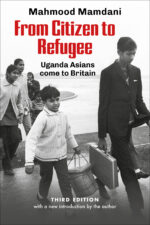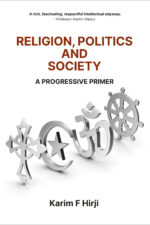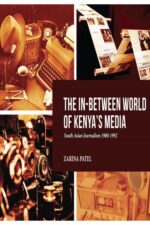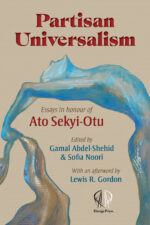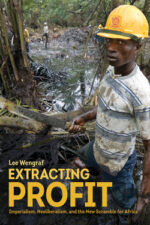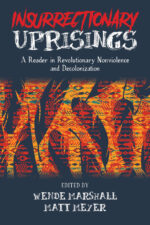-
From Citizen to Refugee: Uganda Asians Come to Britiain
USD $ 15.50In his introduction to this new edition of From Citizen to Refugee: Uganda Asians Come to Britain, Mahmood Mamdani reminds us that long before 1972, most Ugandan ‘Asians’ had already been disenfranchised by law, both Ugandan and British. Despite a global industry that insists otherwise, Uganda Asians are a poor fit as victims: there was no large-scale loss of life during the expulsion, nor were there massacres of Asians, only of ‘indigenous’ peoples. Asians in Uganda, as in East or Southern Africa, he argues, were immigrants, not settlers: immigrants are prepared to be a part of the political community, whereas settlers ‘create their own political community, a colony, more precisely, settler colonialism.’ Mamdani insists that there is no single Asian legacy. there are several and they are contradictory. The Asian question in Uganda remains, but it is no longer the original Asian question. But it does allow us to think more broadly. Just as US law recognizes African Americans as Americans of African descent, so too must those of Asian origin in Africa consider themselves, and be considered, Asian Africans.
It is in his bittersweet and touching book on the Asian expulsion from Uganda that one can trace the beginnings of author and intellectual Mahmood Mamdani’s world-view.. … In From Citizen to Refugee: Uganda Asians Come to Britain Mamdani offers portraits of people reduced to a vegetative existence in refugee camps, feeling the burden of not being fluent in English and struggling with the uncomfortably cold weather. Not surprisingly, these few months played a pivotal role in shaping Mamdani’s theoretical and political leanings, and it is here that one can locate his preoccupation with the formation of racial, ethnic and class identities during the colonial era and his overarching concern with issues of citizenship.
— Bhakti Shringarpure, Associate Professor, University of Connecticut, Editor-in-chief, Warscapes, Founder, Radical Books Collective -
Politics, Democratization and Academia in Uganda: The Case of Makerere University
The value of this brilliant, thoroughly researched, and vigorously written book extends far beyond Makerere University and the case study of its academic union that is a central feature. The authors raise questions applicable to universities worldwide: the meaning of “democracy” for members of the academy, the relationship of the university to government, and the responsibility of academics and the media to the society that they ostensibly serve. Makerere’s failure to advance gender equity is the main focus of one chapter and a leitmotif in several others. A probing and sometimes personal analysis of the Law School, with which all the authors are associated, complements its contribution to the cause of democracy in Uganda. At once reflective and challenging, the authors invite further exploration by academics and policy-makers around the world.
— Carol Sicherman author of Becoming an African University: Makerere, 1922-2000 (2005), Professor Emerita, Lehman College, City University of New YorkPenned by brilliant legal academics, this anthology about that African academic giant—Makerere University—takes the reader on a fascinat- ing and engaging journey about the history of the organizational expression of African intellectuals and their links to the democratic struggles in Uganda. Arguably the best text on academia I have read in a long time, the book provides a deeply examined and superbly chronicled account of the manner in which Makerere University has been a thorn in the side of successive dictatorial governments, while also unpacking the warts that threaten to blight the academy; simply magnificent!
— Dr. Willy Mutunga, Chief Justice & President of Supreme Court, Republic of Kenya, 2011-2016This is a very valuable and a timely contribution to our understanding of sites of struggle in African countries. It focuses on Makerere University as a site of struggle for democratisation. The authors have done a marvellous job. If the sister universities of Dar es Salaam and Nairobi were to produce studies, we would have a veritable trilogy of struggles at our universities in East Africa.
— Issa G Shivji, Professor Emeritus of Public Law & First Julius Nyerere Professor of Pan-African Studies, University of Dar es Salaam, TanzaniaAlma mater to presidents, public intellectuals and pundits of all disciplines, Makerere University has attracted considerable scholarly and popular attention, both in respect of its prominence and achievements, as well as with regard to its failures and foibles. As the oldest (and arguably best-known) university in Uganda and the wider eastern and central Africa region, Makerere looms large in the history of higher education on the continent.
This book explores the relationship between a public university of unique historical importance and the contestations over democratization that have taken place both within campus and beyond. It is pivoted around the late-20th century struggles by university staff and students for improved living conditions against the backdrop of the early programs of structural adjustment and economic reform pursued by the National Resistance Army/Movement (NRA/M) government adopted soon after taking power in 1986.
Although seemingly introverted in focus, in many respects these efforts represented the earliest forms of political resistance against a regime of governance that promised a great deal, but disappointingly delivered considerably less. Collectively, the chapters demonstrate that there is neither a single narrative nor a textbook formula about the relationship between the academy and democratic struggles. Instead of forcing an unsupported and false consensus on the definitive role of Academia in politics, the book seeks to stimulate a robust debate on the subject.
CONTENTS
Preface by Hon. Justice Solomy Balungi Bossa
1. Introduction: The Academy and Political Struggle in Uganda J. Oloka-Onyango
2. The Role of Academia in the Democratization Process Benson Tusasirwe
3. For whom doth the Academic bell really toll? Unpacking the engagement of Makerere University Academic Staff Association (MUASA) in Uganda’s Democratization struggles Maria Nassali
4. Intellectuals and the Fourth Estate: Analyzing the Coverage of Makerere University Academic Staff Association (MUASA) in the Ugandan Media (1989-2020) Ivan Okuda
5. Between Activism and “Hooliganism”: Civic Engagement and Democratic Struggles in Makerere University Students Guild Dan Ngabirano
6. Juggling the Personal and the Political: The Case of Female Academics at Makerere University Sylvia Tamale
7. Contending with the past and building for the future? The Paradoxical contribution of Makerere University School of Law to dictatorship and democratization in Uganda Busingye Kabumba
8. Conclusion: The Political Economy of University Education: Revisiting democratic alternatives for Makerere and Uganda Frederick W. JjuukoContributing Authors
-
Religion, Politics and Society: A progressive primer
USD $ 6.99 – USD $ 46.00Religion, Politics and Society covers the four major global religions—Hinduism, Buddhism, Christianity and Islam—several minor religions—African Folk Religion, Ahmadiyya Muslim Jamaat, Confucianism, Seventh Day Adventism, Sikhism—as well as Secularism. Its foundational premise is that while their spiritual beliefs differ, all humans are equal in dignity and have equal rights. No belief system is more exalted than the rest. There are no chosen people; there is no chosen religion. We all are a part of the global human family. Our religious and cultural diversity is a cause for celebration, not conflict. (see more below under Details)
-
The In-Between World of Kenya’s Media: South Asian Journalism, 1900-1992
This book, originally published by AwaaZ in Kenya, provides insights into journalists of Indian origin who wrote about the struggles of Kenyan people.
-
Partisan Universalism: Essays in Honour of Ato Sekyi-Otu
Critically engaging Ato Sekyi-Otu’s notion of partisan universalism, this timely volume of essays speaks directly to the onto-metaphysical issues that will give Africana thought the new foundations that will enable it to move beyond the lin- guistic turn, brush aside the ashes of Afro-pessimism, engage Badiou’s new mathematical universalism, and to launch new projects of liberation on decolonized grounds of greater epistemic independence. A must read for all concerned with the future of Africana theory and praxis. — Paget Henry, author of Caliban’s Reason.
Responding to the invitation ‘to re-member severed but shareable things’, these lovers of truth, freedom, and dignity celebrate the searing intellect, generosity, wit, and compassion of the person and the scholar Ato Sekyi-Otu. … Combined with Sekyi-Otu’s autobiographical reflections of learning to be Black in the United States and insistence that Afropessimism turns the perverse ontology of the antiblack world into a Black ontology, this is a precious contribution. Not to be missed! —Jane Anna Gordon, author of Statelessness and Contemporary Enslavement and co-editor (with Drucilla Cornell) of Creolizing Rosa Luxemburg
Ato Sekyi-Otu’s thought is one of the most important and exciting in Africa today. The texts compiled in this volume celebrate and engage with the work of Sekyi-Otu … They bear eloquent witness to Sekyi-Otu’s stature as a thinker and to his consistent commitment to the universalization of humanity in both theory and practice. Deeply anchored in African cultures and modes of life, Sekyi-Otu has shown how ideas of human universality are ingrained in African popular sayings and proverbs and are regularly reflected in artistic creations. — Michael Neocosmos, Emeritus Professor in the Humanities, Rhodes University, South Africa
This anthology in honour of Ato Sekyi-Otu is indispensable for those concerned with Frantz Fanon’s ideas of ‘ false’ and ‘ true ‘ decolonisation and about social humanist critique of post-structuralism’ s truncated version of anti-colonialism. Sekyi-Otu accomplishes precisely such a critique in his Fanon’s Dialectic of Experience and in Left Universalism, Africacentric Essays. The essays here are exemplars of such a critique which, together with Fanon and Sekyi -Otu, build a legacy for envisioning a post-imperialist world. The authors of this volume rescue post-colonial studies from a stale and unfruitful post-structuralist reading of anti-colonialism by positing an apparent paradox of ‘left ‘ or ‘ partisan’ universalism which can then be dialectically resolved. Intellectually and politically active at once, this anthology shows how Sekyi-Otu and his co- authors can help the reader to move beyond a binary and solipsistic stance towards a project of a real emancipation, a ‘ true ‘ decolonisation. In this neither the living experience individual nor the collectivity implied in the notion of the human lose their specificity and universality. — Himani Bannerji, Professor Emeritus and Senior Scholar, Department of Sociology, York University
This collection of essays celebrates the work of Ato Sekyi-Otu as a scholar, teacher and friend, marking his extraordinary contribution to the philosophy, politics and praxis of liberation. As Ato Sekyi-Otu has argued in his most recent book, Left Universalism, Africacentric Essays (Routlege 2019), universalism is an ‘inescapable presupposition of ethical judgment in general and critique in particular, especially indispensable for radical criticism of conditions of existence in postcolonial society and for vindicating visions of social regeneration’. Universalism must and can only be partisan. Edited by Gamal Abdel-Shehid and Sofia Noori, the collection includes essays by Stefan Kipfler, Patrick Taylor, Sophie Mcall, Gamal Abdel-Shehid, Jeremy M. Glick, Nigel C. Gibson, Jeff Noonan, Esteve Morera, Tyler Gasteiger, Olúfeṃ́i Táíẃò, Susan Dianne Brophy, Nergis Canefe, Chistoher Balcom, Lewis Gordon, and by Ato Sekyi-Otu himself.
CONTENTS
- Introduction: Gamal Abdel-Shehid
- Fanon for a post-imperial world: On universals and other human matters: Stefan Kipfer
- The Sea Menagerie: Esi Edugyan’s Atlantic: Patrick Taylor
- Reconsidering Fanon’s language of recognition in Indigenous studies: Sophie McCall
- On Fanon and Lacan: Continuities and structural psychiatry: Gamal Abdel-Shehid
- Aimé Césaire’s Two ways to lose yourself: The Exception and the rule: Jeremy M. Glick
- This Africa to Come: Nigel C. Gibson
- Speaking for, speaking through, speaking with: Abstract and concrete universality in the struggle for human emancipation: Jeff Noonan
- Universality: Notes towards rethinking the history of philosophy: Esteve Morera
- Husserl and Tran Duc Thao: Crisis, renewal, and the ontology of possibility: Tyler Gasteiger
- Can Kwame Gyekye’s moderate communitarianism take the individual seriously? Olúfeṃ́i Taíẃò
- ‘Innocuous Nihilism’, social reproduction and the terms of partisanship: Susan Dianne Brophy
- Marxism, Law and the Global South: Asiatic Mode of Production Debates, The Legal Subject and the Promise of Left Universalism: Nergis Canefe
- Universalism and immanent critique in ‘The End of Progress and Left Universalism’: Christopher Balcom
- CON-TEXTS OF CRITIQUE: Ato Sekyi-Otu
- Afterword: Lewis Gordon
- About the contributors
-
Extracting Profit: Imperialism, Neoliberalism and the New Scramble for Africa
A piercing historical explanation of poverty and inequality in African societies today and the social impact of resource-driven growth, Extracting Profit explains why Africa, in the first decade and a half of the twenty-first century, has undergone an economic boom. Rising global prices in oil and minerals have produced a scramble for Africa’s natural resources, led by investment from U.S., European and Chinese companies, and joined by emerging economies from around the globe. African economies have reached new heights, even outpacing rates of growth seen in much of the rest of the world. Examined through the lens of case studies of the oil fields of the Niger River Delta, the Chad-Cameroon Pipeline and the East African infrastructure boom, this period of “Africa rising” did not lead to the creation of jobs, but has instead fueled the extraction of natural resources, profits accruing to global capital, and an increasingly wealthy African ruling class.
Extracting Profit argues that the roots of today’s social and economic conditions lie in the historical legacies of colonialism and the imposition of so-called “reforms” by global financial institutions such as the World Bank and International Monetary Fund. The chokehold of debt and austerity of the late twentieth century paved the way for severe assaults on African working classes through neoliberal privatization and deregulation. And while the scramble for Africa’s resources has heightened the pace of ecological devastation, examples from Somalia and the West African Ebola outbreak reveal a frightening surge of militarization on the part of China and the U.S.
Yet this “new scramble” has not gone unchallenged. With accounts of platinum workers’ struggles in South Africa, Nigerian labor organizing and pro-democracy upheavals in Uganda and Burkina Faso, Extracting Profit offers several narratives of grassroots organizing and protest, pointing to the potential for resistance to global capital and fundamental change, in Africa and beyond.
And in an updated Preface, the author analyses the implications of the Covid-19 pandemic and escalating climate emergency, as both the crises and resistance to extraction accelerate across the continent.
Reviews-
“Lee Wengraf’s Extracting Profit – Imperialism, Neoliberalism and The New Scramble for Africa is at once historical and contemporary. It unpacks ongoing resource crimes by analytically exposing its historical roots and pointing to ways by which the oppressed can cut off the bonds that lock in their subjugation.” —Nnimmo Bassey, Director, Health of Mother Earth Foundation
“Lee Wengraf provides an important reminder that Africa’s position within the world economy is heavily determined by its unequal insertion into the global capitalist system and ongoing manifestations of imperialism.” –James Chamberlain, Sheffield Political Economy Research Institute
“Lee Wengraf’s Extracting Profit provides a breathtakingly detailed account and analysis of some of the major socioeconomic ills that have been plaguing Africa for centuries. Amongst the host of issues she tackles, arguably the most consequential are mass poverty in African societies, their indefensible economic inequalities and the steady plundering of the continent’s resources, starting from the slave-trade era up till the present-day.” –Remi Adekoya, Review of African Political Economy
“Extracting Profit offers several narratives of grassroots organizing and protest, pointing to the potential for resistance to global capital and fundamental change, in Africa and beyond.” –Developing Economics
“Evidently, this book is well-researched and it contributes to the expansion of the frontiers of Marxist scholarship on Africa’s development dilemma within the global capitalist order. This book lends credence to the pioneering works of such notable radical scholars as Andre Gunder Frank, Walter Rodney, and Samir Amin among several others. It should be read by students and teachers of political economy, development studies, Marxism and philosophy.” –Marx & Philosophy Review of Books
“Extracting Profit provides a great arch of scutiny from the earliest carve-up of the African continent, through colonialism, war, imperialism, to the recent neoliberal takeover. The book demonstrates the continued importance of Marxist analysis on the continent, asserting the centrality of class analysis and a project of revolutionary change. Wengraf provides us with a major contribution, that highlights contemporary developments and the role of China on the African continent that has perplexed and baffled scholars. An indispensable volume.” —Leo Zeilig, author of Frantz Fanon: The Militant Philosopher of Third World Revolution
“The history of resource frontiers everywhere is always one of lethal violence, militarism, empire amidst the forcing house of capital accumulation. Lee Wengraf in Extracting Profit powerfully reveals the contours of Africa’s 21st century version of this history. The scramble for resources, markets, and investments have congealed into a frightening militarization across the continent, creating and fueling the conditions for further political instability. Wengraf documents how expanded American, but also Chinese, presence coupled with the War on Terror, point to both the enduring rivalry among global superpowers across the continent and a perfect storm of resource exploitation. Wengraf offers up a magisterial synopsis of the challenges confronting contemporary Africa.” —Michael Watts, University of California, Berkeley
“One of the most well-known stylized facts of Africa’s recent growth experience is that it has been inequality-inducing in ways that previous growth spurts were not. Lee Wengraf, in her new book Extracting Profit , expertly utilises the machinery of Marxian class analysis in making sense of this stylized fact. Along the way we learn much about Africa’s historical relationship with imperialism and its contemporary manifestations. This book should be required reading for all those who care about Africa and its future.” —Grieve Chelwa, Contributing Editor, Africa Is A Country
“In recent years countries in the African continent have experienced an economic boom—but not all have benefited equally. Extracting Profit is a brilliant and timely analysis that explodes the myth of “Africa Rising,” showing how neoliberal reforms have made the rich richer, while leaving tens of millions of poor and working class people behind. Lee Wengraf tells this story within the context of an imperial rivalry between the United States and China, two global superpowers that have expanded their economic and military presence across the continent. Extracting Profit is incisive, powerful, and necessary: If you read one book about the modern scramble for Africa, and what it means for all of us, make it this one.” —Anand Gopal, author, No Good Men Among the Living: America, the Taliban, and the War Through Afghan Eyes
“Thorough and thoughtful, Wengraf’s book has a radical depth that underscores its significance. It’s definitely a must-read for anyone who cherishes an advanced knowledge on the exploitation of Africa as well as the politics that undermines Africa’s class freedom.” —Kunle Wizeman Ajayi, Convener, Youths Against Austerity and General Secretary of the United Action for Democracy, Nigeria
“Extracting Profit is a very important book for understanding why the immense majority of the African population remain pauperised, despite impressive growth rates of mineral-rich countries on the continent. It continues the project of Walter Rodney’s How Europe Underdeveloped Africa. And in several ways, it also goes beyond it, capturing the changing dynamics of global capitalism 45 years after Rodney’s magnus opus.
In this book, Lee Wengraf debunks the myth of “Africa Rising” and the supposed expansion of an entrepreneurial middle-class, revealing “reforms” imposed by international financial institutions as mechanisms for fostering imperialism in an era of sharpening contradictions of the global capitalist economy. The adverse social, economic, political and environmental impact of these are elaborated on as a systemic whole, through the book’s examination of the sinews of capital’s expansion in the region: the extractive industries.
But, Wengraf does not stop at interrogating the underdevelopment of Africa. Her book identifies a major reason for the failures of national liberation projects: while the working masses were mobilised to fight against colonial domination, the leadership of these movements lay in the hands of aspiring capitalists, and intellectuals. The urgency of the need for a strategy for workers’ power internationally, she stresses correctly, cannot be overemphasized.
Reading Extracting Profit would be exceedingly beneficial for any change-seeking activist in the labour movement within and beyond Africa.” —Baba Aye, editor, Socialist Worker (Nigeria)
-
-
Insurrectionary Uprisings: A Reader in Revolutionary Nonviolence and Decolonization
Insurrectionary Uprisings is a compendium of essays that explore what it will take to win a world based on love and justice. From historical writing, including Thoreau, Gandhi and Arendt, to essays that address the multiple crises we face in the 21st century, the volume brings together authors and thinkers from around the globe. With an emphasis on the quotidian violence of racial monopoly capitalism and Western imperialism, Insurrectionary Uprisings insists that the possibility of revolutionary nonviolence rests, in part, on decolonization and decoloniality and a thorough analysis of the deep and violent roots of racial capitalism, settler colonialism and heteropatriarchy. Fannie Lou Hamer’s testimony at the 1964 Democratic Convention underscores the inherent violence that saturates life in the U.S., while Cabral’s “Message to the People of Portugal” challenges the working class of imperial Portugal to recognize their kinship and to form alliances with the people of Guinea-Bissau. The very different strands of activist thinkers who comprise the book centre it on the experience of the global majority.
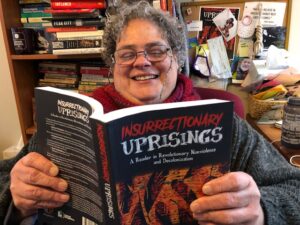
Editor Wende Marshall reading Insurrectionary Uprisings!
-
From Citizen to Refugee: Uganda Asians Come to Britiain
USD $ 15.50In his introduction to this new edition of From Citizen to Refugee: Uganda Asians Come to Britain, Mahmood Mamdani reminds us that long before 1972, most Ugandan ‘Asians’ had already been disenfranchised by law, both Ugandan and British. Despite a global industry that insists otherwise, Uganda Asians are a poor fit as victims: there was no large-scale loss of life during the expulsion, nor were there massacres of Asians, only of ‘indigenous’ peoples. Asians in Uganda, as in East or Southern Africa, he argues, were immigrants, not settlers: immigrants are prepared to be a part of the political community, whereas settlers ‘create their own political community, a colony, more precisely, settler colonialism.’ Mamdani insists that there is no single Asian legacy. there are several and they are contradictory. The Asian question in Uganda remains, but it is no longer the original Asian question. But it does allow us to think more broadly. Just as US law recognizes African Americans as Americans of African descent, so too must those of Asian origin in Africa consider themselves, and be considered, Asian Africans.
It is in his bittersweet and touching book on the Asian expulsion from Uganda that one can trace the beginnings of author and intellectual Mahmood Mamdani’s world-view.. … In From Citizen to Refugee: Uganda Asians Come to Britain Mamdani offers portraits of people reduced to a vegetative existence in refugee camps, feeling the burden of not being fluent in English and struggling with the uncomfortably cold weather. Not surprisingly, these few months played a pivotal role in shaping Mamdani’s theoretical and political leanings, and it is here that one can locate his preoccupation with the formation of racial, ethnic and class identities during the colonial era and his overarching concern with issues of citizenship.
— Bhakti Shringarpure, Associate Professor, University of Connecticut, Editor-in-chief, Warscapes, Founder, Radical Books Collective

